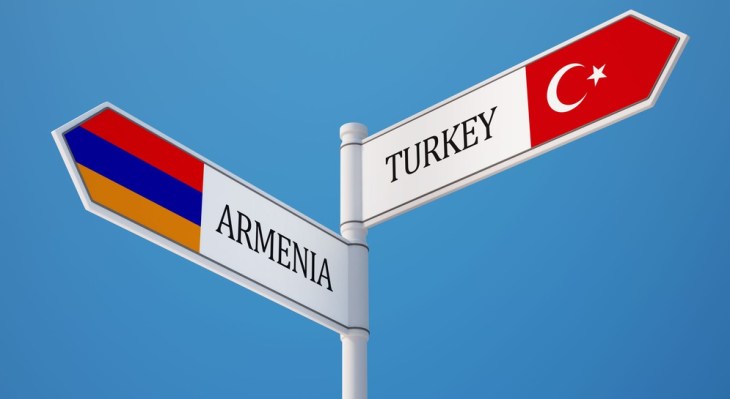Editor’s note: Elmira Bayrasli is the founder of the World Policy Institute’s Global Entrepreneurial Ecosystems Project, which builds on the belief that entrepreneurs are a product of his or her environment.
It’s not unusual to encounter a Startup Weekend somewhere in the world. The trademarked event that brings together individuals eager to build and present it before a panel of entrepreneurship experts and investors is well known and widely replicated.
Yet, when a Startup Weekend involves Armenia and Turkey – known adversaries – things change.
Earlier this month, the Economic Policy Research Foundation of Turkey (TEPAV), the Public Journalism Club (PJC) based in Yerevan, and Global Entrepreneurship Week in Armenia collaborated to host Startup Weekend Armenia-Turkey. It was the first Startup Weekend to involve entrepreneurs from two countries with no diplomatic relations. It was also a rare Startup Weekend to take place in two different cities.
Kicking off in Armenia’s capital Yerevan, more than two-dozen men and women crowded into Elite Plaza, a sleek business center. The facilitators, Ece Idil Kasap and Emin Okutan, partners of the Turkish accelerator Viveka, eased the crowd donned in black Startup Weekend t-shirts into the weekend’s activities. It was a slow start, with more feet shuffling and hands in pockets.
Soon enough, however, the room started to buzz. Armenians and Turks broke into six mixed teams and began to work on developing their startup ideas. By the time pitches came around on Sunday afternoon in Gyumri – a city 75 miles northwest of Yerevan – new ventures, along with friendships, had been formed.
Mihran Babayan and Vahagn Hovhannisyan, both based in Yerevan, had come to the event with their plan for Home Planning, an online interior design business. “I thought I could develop a bigger network with Turkish people,” Hovhannisyan said, noting that Armenia is a land-locked country of just 3 million. “During the 24 hours of working with the Turks I got new ideas that are great and I made great connections.”
Similarly Mariam Dilbandyan came to Startup Weekend Armenia-Turkey with Seeing Hands, a social enterprise that trains the blind to give massages, with the hopes of building her business. “I heard that a Turkish group was coming and I know that in Turkey there are many beaches,” she said. And where there are beaches there are people in search of massages. With 80 million in Turkey, Dilbandyan pointed out, she has a better chance of scaling her business idea than merely staying in Armenia.
“My grandparents are from Western Armenia – from Erzurum,” she said. “So I feel a connection with them. I love Turkish people.”
Hers was a view that was echoed. In fact, throughout the weekend, as Sinem Duman, a student at Turkey’s TOBB University noted, there was little if any talk about the historical enmities between Armenia and Turkey. “I thought the atmosphere would be more tense,” she said. “In fact everyone was eager to make friendships.”
“This was an awesome chance to work with our colleagues from Turkey,” said Artavazd Barseghyan, the co-founder of a Yerevan-based software company. He noted that he didn’t think about his country’s bad relationship with Turkey. “I think that the younger set of minds are different; we are open and don’t find problems – we want to find solutions.” He noted that the Armenia-Turkey Startup Weekend proved that. “It doesn’t matter to which nation you belong to – we are united in technology.”
Among the six teams at Startup Weekend Armenia-Turkey that found success, Home Planning and Seeing Hands earned recognition for their original ideas. It was, however, a startup that fuses the sharing economy to cloud storage – “an Airbnb for file sharing” that came out on top – WeCloud.
WeCloud, an idea put forward by Berkay Akcora, Anita Alexanian, Umutcan Duman and Gor Vardanyan, addresses the increasing problem of growing data but little storage. The startup allows a user to “trade in unused local storage to provide low cost, unlimited hosting services.”
The experience both Alexanian and Duman noted exceeded their collective expectations. “It’s amazing what you can do in 24 hours – how much you can learn,” said Duman. More important, he noted, was how much he bonded with his Armenian partners. “We weren’t focused on being Armenian or Turkish – just on being the best.”
